“Democracy means that people are continuously auditing government,” says OP Rawat, India’s Chief Election Commissioner.
“If government does not perform, they will be thrown out. They always have to be on their toes.”
This helps to explain why, in apparent contrast to the West, there is increasing enthusiasm for elections in India.
In the May 2014 general election, for example, 540-million voters – 66.4% of those eligible – went to the polls. This was a new record for India, up from 58% in 2009, even the 44% who voted in 1951 amidst the warm glow of independence. It surpassed the previous high in the 1984 election won by Rajiv Gandhi after his mother Indira was assassinated, when 64% of voters went to the polls.
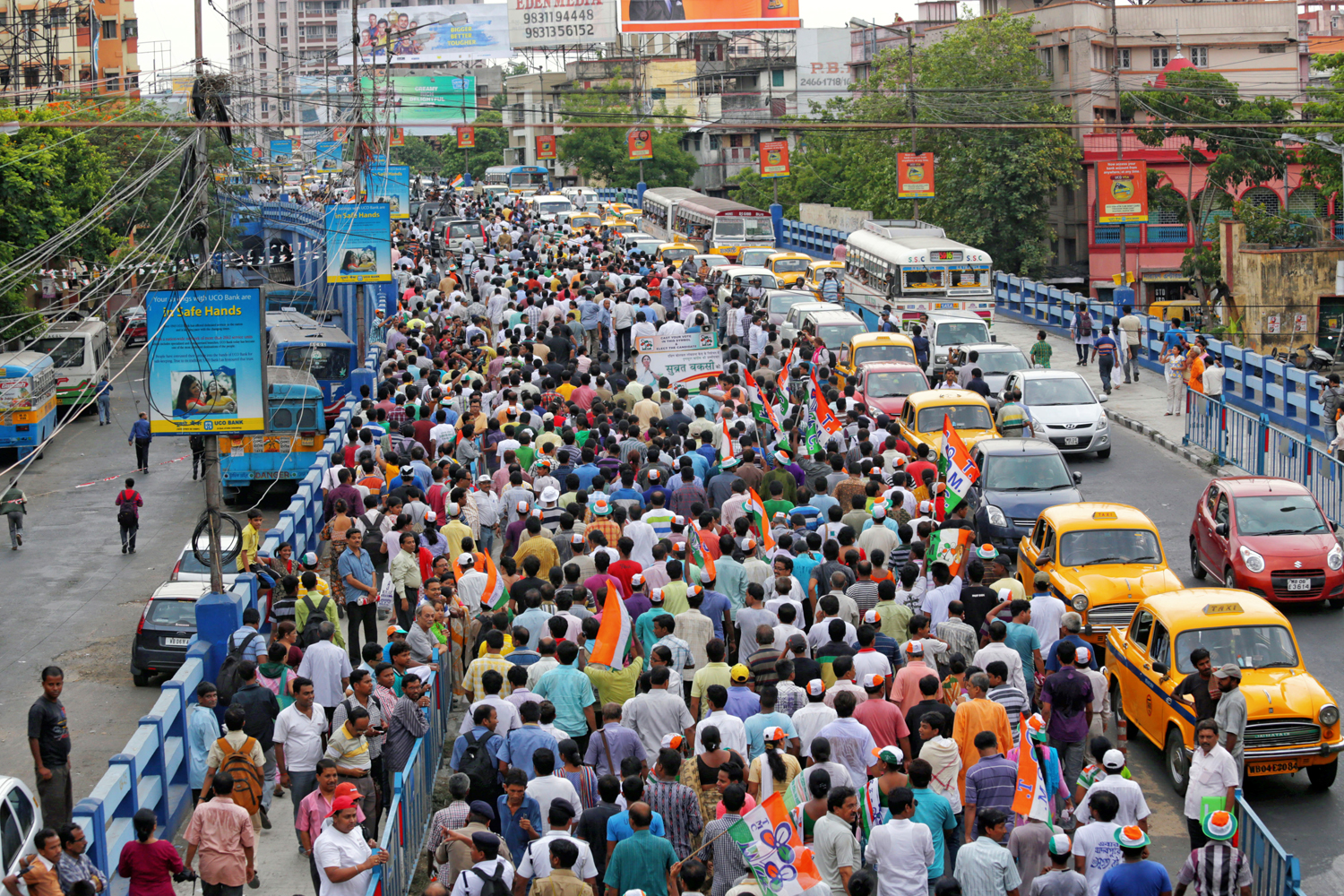 Indians attend a mass rally organised by Trinamool Party before the ninth phase of the parliamentary elections in Calcutta, Eastern India, 10 May 2014. EPA/PIYAL ADHIKARY
Indians attend a mass rally organised by Trinamool Party before the ninth phase of the parliamentary elections in Calcutta, Eastern India, 10 May 2014. EPA/PIYAL ADHIKARY
Turn Indian television on today, and one is assaulted by politicians shouting at each other. The newspapers are alive with justifications of policy and claims and counter-claims by politicians.
It’s the rhetorical Wild West of politics.
But it was not always like this. India has slowly shifted from a stately mode of liberation politics – known locally as the national movement – which focused on keeping the place together. Initially the system was concerned with delivering the “procedural” aspect of the democratic process, including free and fair elections, functional institutions, legislative assemblies and constitutional governments.
This was no small achievement. “India is no more a political personality,” highlighted Winston Churchill, “than Europe. India is a geographical term. It is no more a united nation than the Equator”. No stranger to hyperbole, and no fan, to put it mildly, of Mahatma Gandhi, Jawaharlal Nehru and the independence movement, the British Prime Minister was famously describing the strains of a multi-ethnic, linguistically diverse, caste-conscious and highly-populated country. His views seemed all too accurate amidst the cost of partition in 1947 which displaced 15-million people and killed more than a million.
Still, whatever its excesses, and frailties, democracy has enabled the country to stick together, no small feat if Churchill’s description is remotely accurate. As Fareed Zakaria reminds in the context of India:
“Democracy makes for populism, pandering and delays. But it also makes for long term stability.”
The extent of this feat is reminded by the tragedy of the Nehru/Gandhi family.

Nehru and Gandhi, two of the leaders of the National Movement.
Despite the weekend throngs, Indira Gandhi’s former Delhi home is a place of calm. Photographs, most of them black and white, chart the political dynasty from her father, Jawaharal Nehru, the first Prime Minister of India, through her two controversial terms as premier to that of Rajiv who succeeded her.
Voted as ‘Woman of the Millennium’ in an online poll organised by the BBC, Indira Gandhi had more than a streak of ruthlessness, a steel tempered from viewing her father’s torment at the hands of political rivals. She was not going to make the same mistake. The original Iron Lady instituted a state of emergency in 1975, restoring order and cementing her rule after refusing to vacate her position even though a court order had found her guilty of electoral malpractice.
She suspended basic civil liberties, fettered press freedoms and arrested opposition figures. But the electorate struck back. Her party was crushed in the 1977 elections, the Prime Minister even losing her seat in the process. But she came back strongly in 1980, sweeping all before her in that poll.
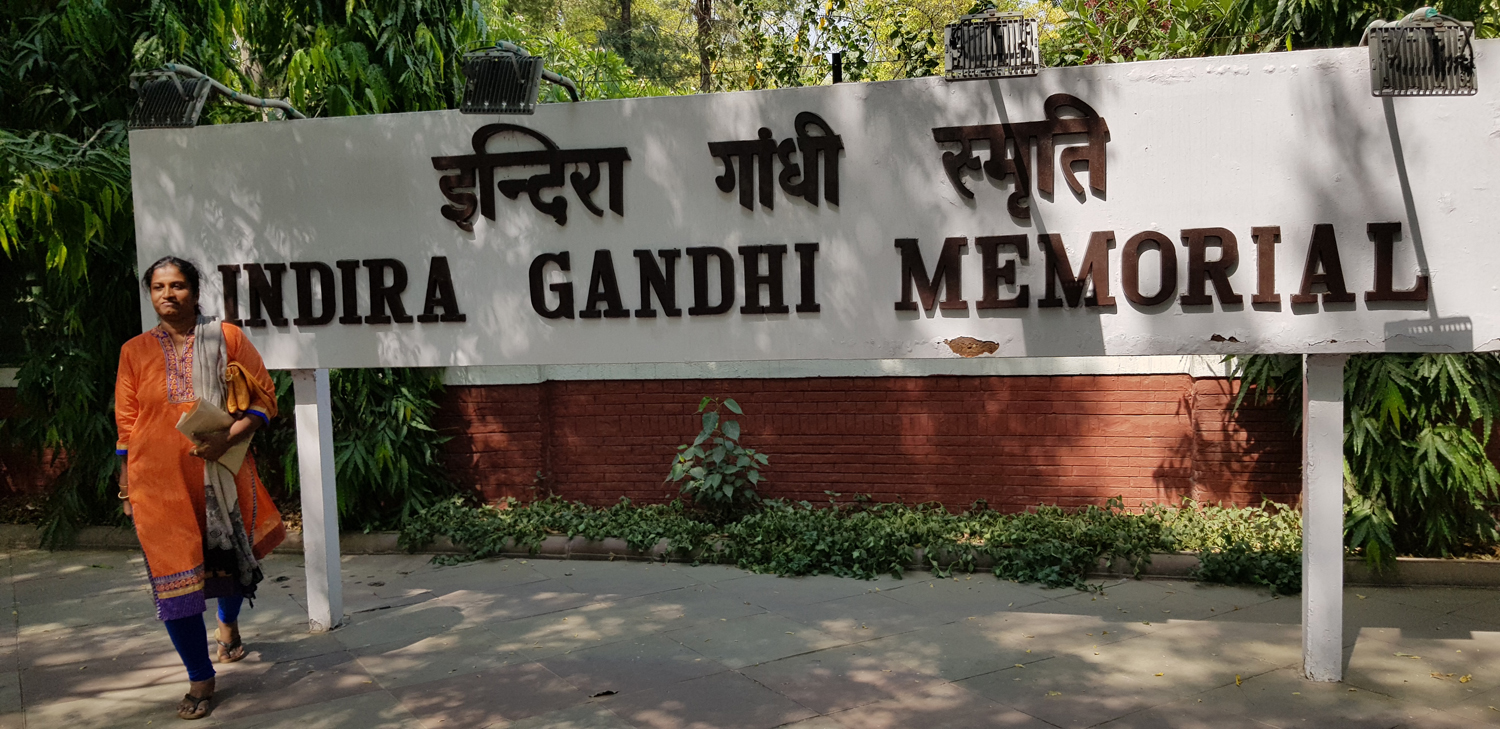
Indira Gandhi's Memorial is located in her bungalow in Delhi's leafy suburbs.
Today, under the cooling shade of the crowded Neem trees, the peaceful garden surrounding the simple, white bungalow betrays little of the subsequently bloody history of this corner of Delhi. The pathway to her adjoining office is marked by a slab of crystal, suggesting a river in flow. Close to its end is a sheet of clear glass, the point where she was assassinated by her Sikh bodyguard on 31 October 1984. Rajiv, who took over until 1989, met an equally grisly end, blown to bits by a Tamil suicide bomber in May 1991.
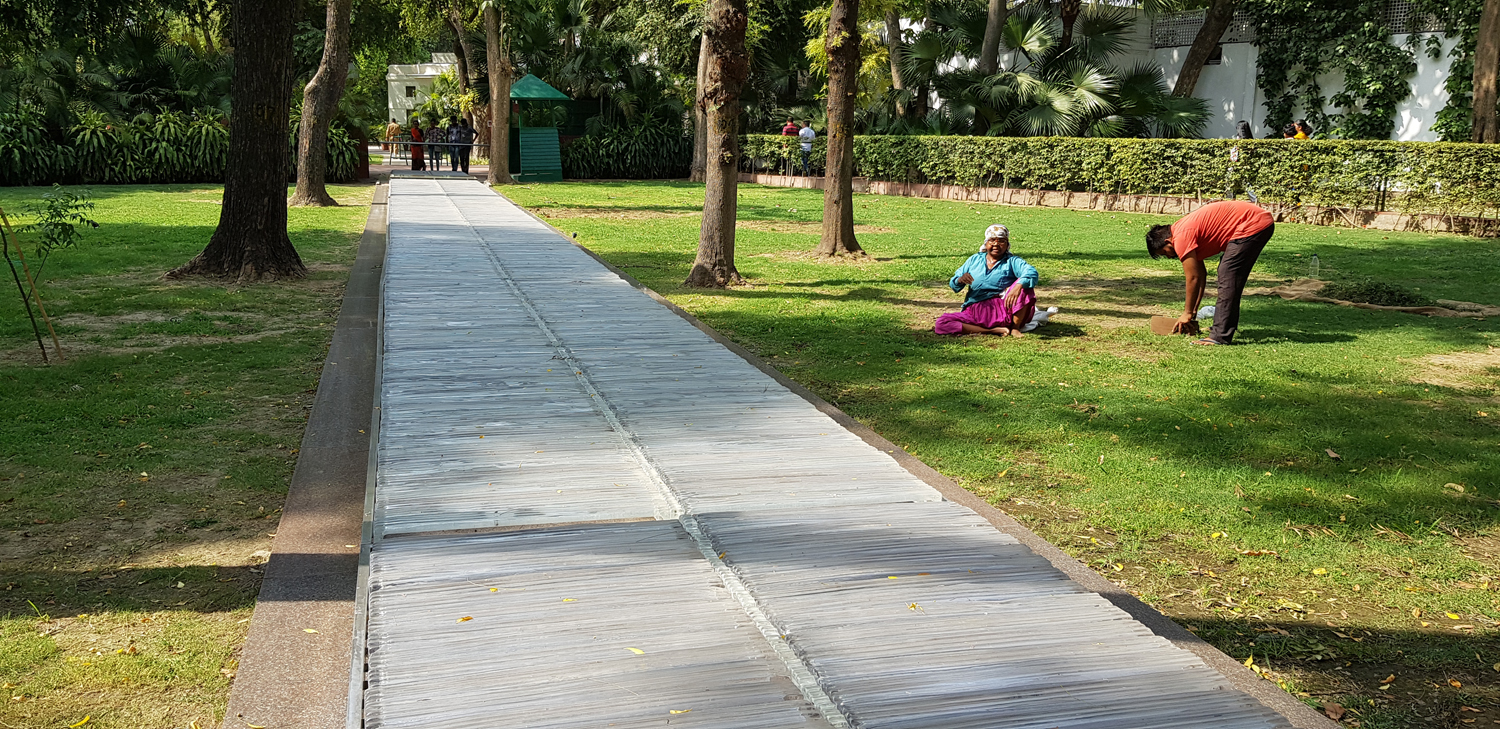
The pathway to Indira Gandhi's office is marked by a slab of crystal suggesting a river in flow.
Yet India weathered these storms as admirably as this power family managed its personal tragedy.
Ironically, India’s ongoing stability is owed in part to the Indian Congress Party’s dominance of politics for much of the last 70 years and its politically inclusive nature which incorporated different ethnic and religious groups. This was backed up by a constitution which guarantees cultural and minority rights and representation.
Now, however, India has changed democratic gear. There is much greater focus on delivery – on the ‘substantive’ aspect of democracy, including socio-economic opportunity, accountability and the rule of law – than simply the right to vote.
This is hardly surprising given the scale of India’s challenges.
As one measure, set to succeed China by 2030 as the world’s most populous nation, India needs to create as many as ten million jobs every year to accommodate new job entrants. In spite of economic growth consistently topping 7%, it has not created half that job number currently. The country faces generational challenges of malnutrition, stunting and disease; more than half the people world-wide who defecate in the open live in India.
Delhi is projected to double to 36-million people by 2050 at current rates of growth, second then in size world-wide only to Mumbai at 42-million. To give a contemporary example of what these numbers mean, the 90,000 available places in Indian Railways received 23-million applications in 2018, while 465,000 wrote exams for just 1,200 prestigious civil service places.
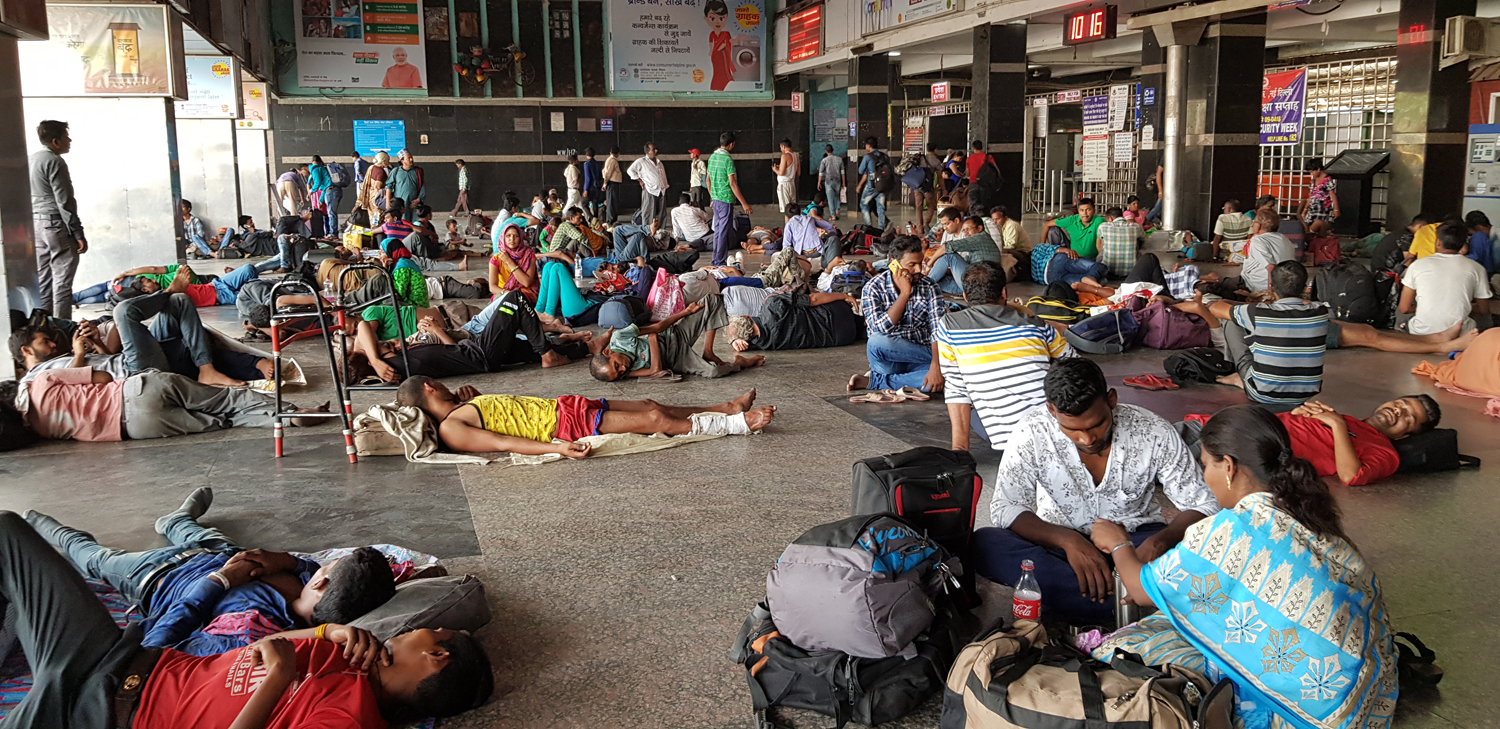
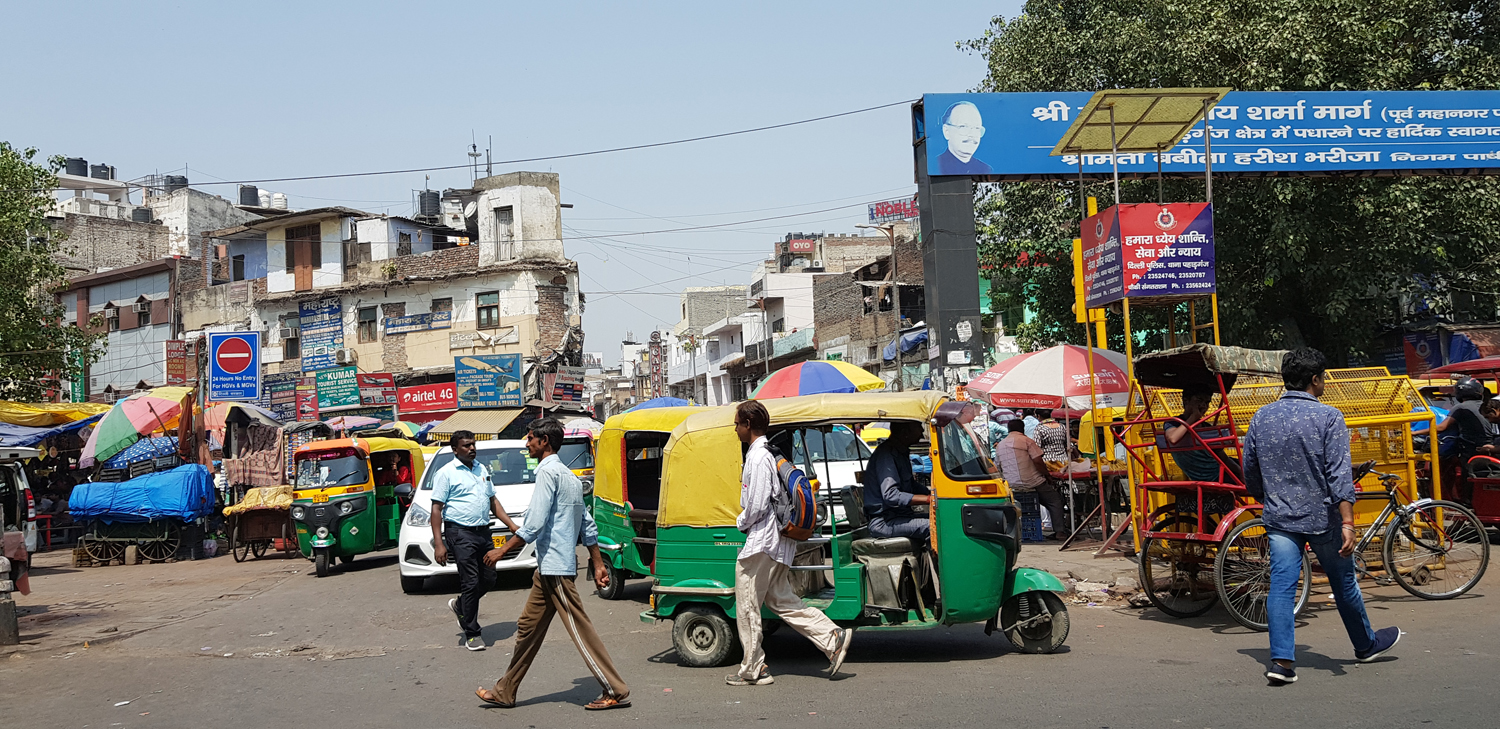
Delhi's population is expected to double to 36-million by 2050 at current rates of growth.
India’s liberation philosophy always argued that growth would follow political emancipation. Just as this approach faltered in West Africa and elsewhere, politics in India became hopelessly corrupted by the excesses of dynastic and other anti-democratic tendencies in the elites clustered around the Congress Party.
The basics were not enough for India’s burgeoning population.
Now India’s own liberation movement has found itself out of power despite accessing the levers of patronage, privilege and power for nearly 70 years. Just as with Indira Gandhi, the system tempered its rule.
As the economy slowed, Congress’ popularity suffered, given the perpetual stink of cronyism and corruption permeating the political realm, and its failure to deliver, at least as much as it promised. Most Indians preferred Narendra Modi’s reformist agenda to Congress’ continuity. Modi and his right-leaning Bharatiya Janata Party (BJP) preached something different to Congress’ worn liberation track.
The son of a Gujarat tea seller, Modi was introduced to the right-wing Rashtriya Swayamsevak Sangh (RSS – National Patriotic Organisation), regarded as the parent organisation of the BJP, at the age of eight. Forced into hiding in 1975, he rose to the rank of RSS Secretary-General before becoming Chief Minister of Gujarat in 2001. His victory in the 2014 general election was the first time any party had achieved a majority in the Lok Sabha, the parliament, since 1984.
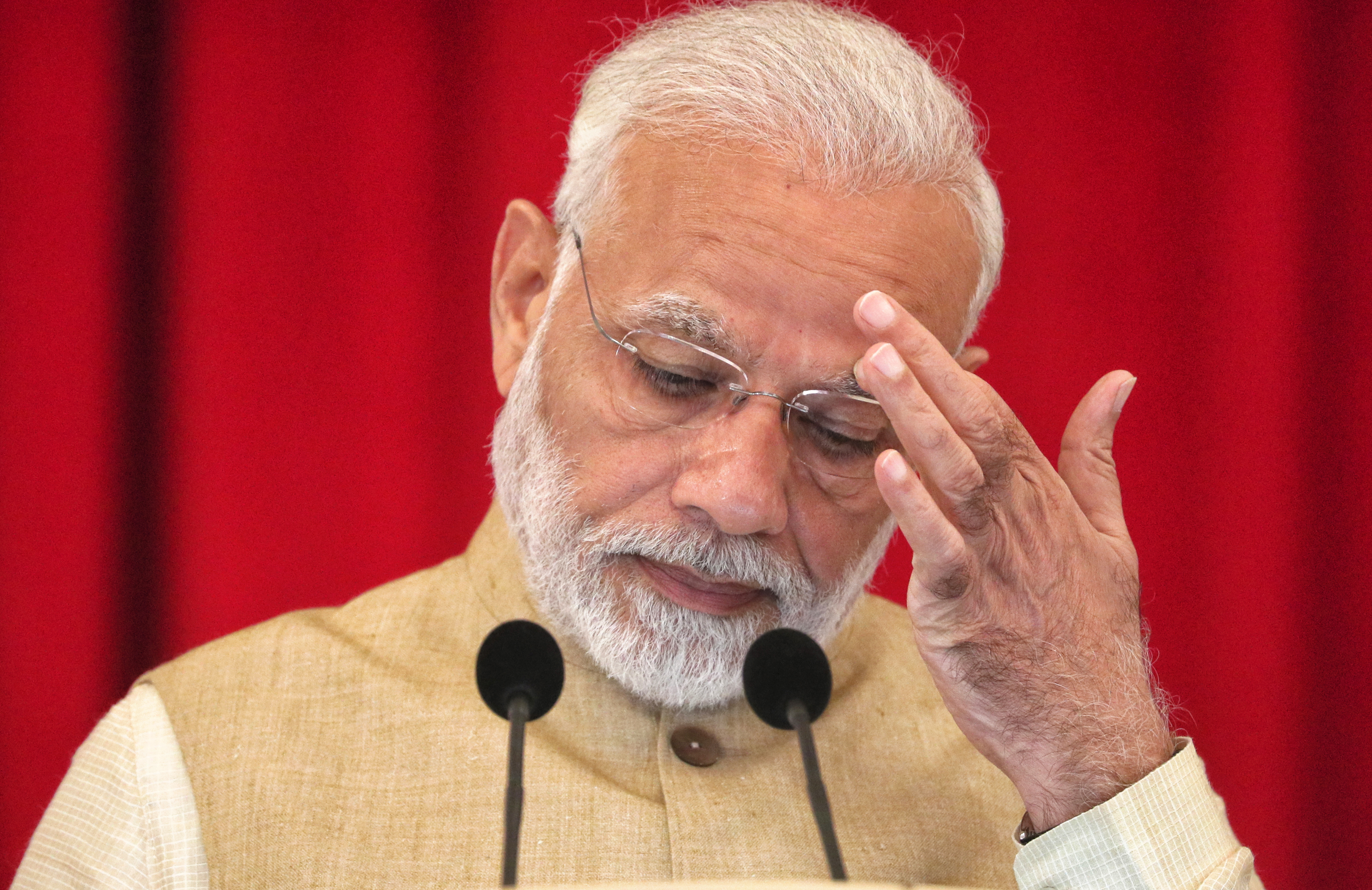 Indian Prime Minister Narendra Modi speaks during a press conference at the Istana Presidential Palace in Singapore, 01 June 2018. EPA-EFE/WALLACE WOON
Indian Prime Minister Narendra Modi speaks during a press conference at the Istana Presidential Palace in Singapore, 01 June 2018. EPA-EFE/WALLACE WOON
When Modi took over in 2014, the country ranked 142nd out of 189 on the World Bank’s Doing Business ratings. It stood a wretched 184th in the category ‘Dealing with Construction Permits’, and 186th in ‘Enforcing Contracts’.
With Modinomics the Indian government has acted boldly on its mandate. His government has taken steps to address the country’s rampant corruption culture.
“Corruption and black money have destroyed the Indian democracy,” Modi has said, “eating into it like a termite”.
In November 2016, his administration implemented a demonetisation (DeMo) policy which, by eliminating all 500 and 1,000-rupee notes in circulation, was to remove untaxed, unmonitored “black money” from the system. Imperfect while they have been, attempts to streamline taxes though the introduction of a Goods and Services Tax (GST) and other measures have earned his government a rise to 100th place on the Bank’s Ease of Doing Business index.
Clearly sensitive to the electorate, the BJP is quick to advertise its achievements. Whatever the naysayers, it’s a pretty good story, of high growth, easing fiscal deficits, and healthy investor inflows. The percentage of households with toilets has doubled to 80%.
They are not sitting on this either.
When Modi took over in May 2014, the BJP ran governments in seven states. Four years later it was in control or alliance in 22 of 31 states, and the Congress just four. Modi has worked assiduously in the public eye to expand the party’s footprint across India to ensure a Congress-mukt Bharat (Congress-free India). The BJP views Congress’ commitment to secularism, welfarism, and dynastic politics as behind India’s weakness.
This does not mean, of course, that all procedural challenges have disappeared.
There are worrying democratic signs, not least around instances of Hindu ultra-nationalism, manifest in “beef lynchings”, routine censorship on the grounds of public decency or morality including internet black-outs (in 2016, India had the highest number of state-wide shut-downs globally, leading to the circulation of a Don’t Shut India Down petition), securitisation of government actions in areas threatened by insurgencies including Kashmir and the northeast, in terms of widespread sexual violence, and threats, overall, to the operating space of civil society. The latter has included crackdowns on foreign funding and greater challenges in obtaining NGO licence renewals.
Similarly, challenges of corruption, vote-buying and elite behaviour remain.
While the most famous, the Nehru/Gandhi family has not been the only dynasty in politics in India. This feature defines politics in many of the 31 states. Parties have been closely tied in with family networks and financing that goes with it. The cost of a campaign for one of the 543 parliamentary seats, as much as $3-million in the larger constituencies, is seen as another anti-democratic hurdle.
“There are lots of infirmities, of course,” admits Shakti Sinha, who served as Private Secretary to the first BJP Prime Minister Atal Bihari Vajpayee. “But there is also lots of change ... such as in the extent of federalism, with more and more attention and funding going to local government.”
Some 60% of central government money is now funnelled through local authorities where not fewer than 3.4 million elected men and women operate.
And for all of the procedural difficulties, the numbers enthusiastically participating in elections remains high and is expected to rise further.
In 2010 the Election Commission launched the Systematic Voter Education and Electoral Participation (SVEEP) programme, incorporating folk and digital media to ensure “electoral literacy”. Technology is also being leveraged, “realising that to hold elections for 875-million people and count votes in a short time is cumbersome and complicated”.
Not only is every vote made through an Electronic Voter Machine in each of the one-million ballot stations, but now this is paralleled by a Voter Verifiable Paper Audit Trail (VVPAT) spot audits ensuring accuracy. The next stage is an electronically transmitted postal ballot for members of the armed forces, the disabled and diaspora.
To ensure elections are free and fair, the Commission has implemented an app to encourage “citizen’s surveillance” including of any vote buying. During the 2018 state election in Karnataka, the Commission received no fewer than 780 videos from citizens alleging malfeasance. The process is backed up by “flying squads” of GPS-enabled Commission teams. As one measure, the 2015 election in Karnataka yielded Rs200-million in seizures; that in 2018, Rs1.8 billion. The Commission also monitors closely candidate expenditure, which are supposed to be no more than $100,000 per MP and $40,000 for local government representatives, though there is no limit on party political expenditure.
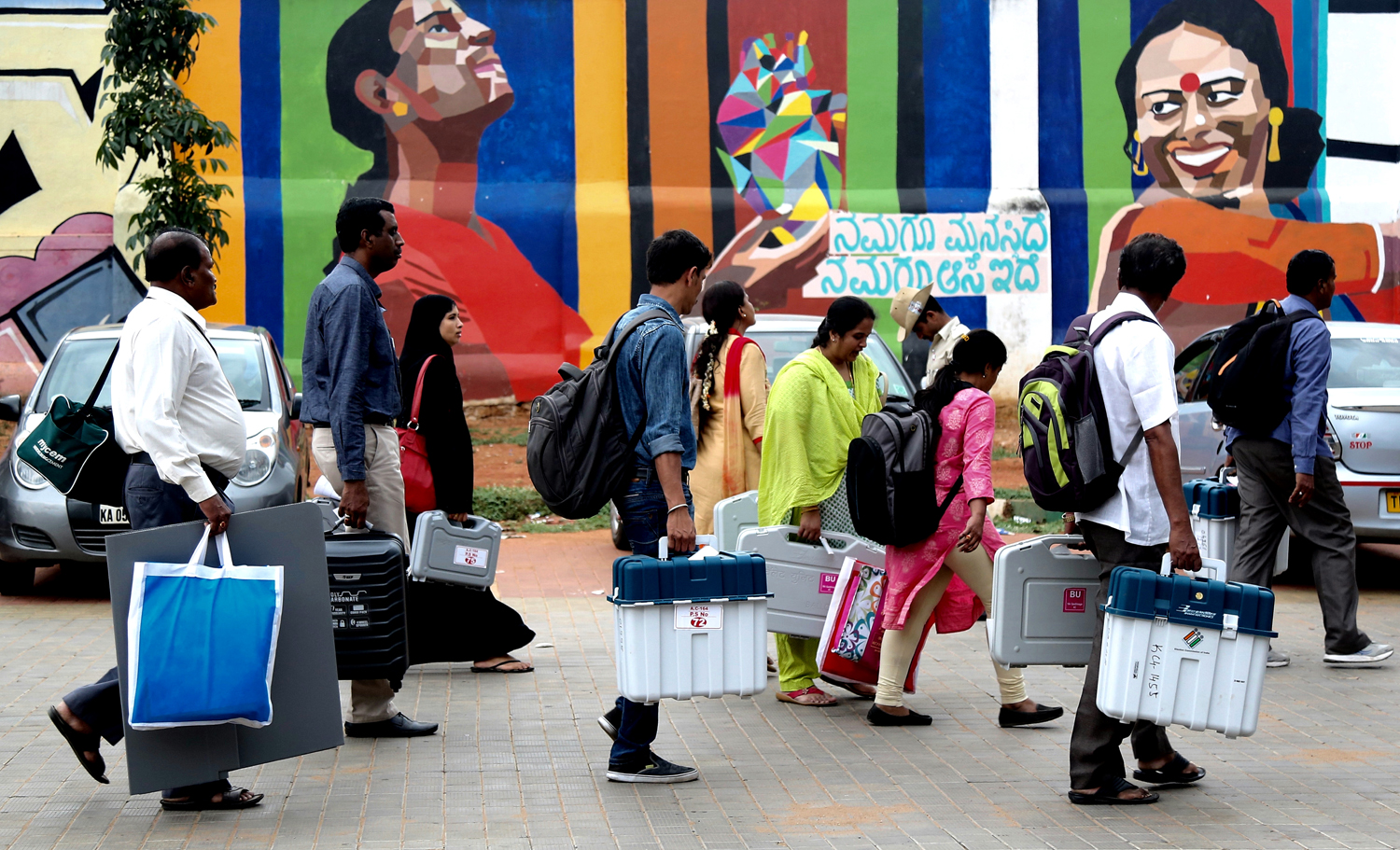 Indian preceding officers carry electronic voting machines and Voter Verifiable Paper Audit Trails to their respective polling booths on the eve of Karnataka Assembly Election and polls in Bangalore, India, 11 May 2018. EPA-EFE/JAGADEESH NV
Indian preceding officers carry electronic voting machines and Voter Verifiable Paper Audit Trails to their respective polling booths on the eve of Karnataka Assembly Election and polls in Bangalore, India, 11 May 2018. EPA-EFE/JAGADEESH NV
The Chief Commissioner acknowledges that India’s relative lack of internet penetration provides a measure of security, “which means that the likes of Cambridge Analytica and others do not affect us to a great extent”, he says. This is backed up by cyber security protocols, while the Commission is looking at ways “to bring social media into line”. Of greater concern, however, than security, is driving up voter interest in urban areas, where some 35% of the population lives, where the turnout is 54%, for example in Bangalore City, compared to 76% in the rural areas.
Of course Congress officials are not happy with this turn, even though they admit their own organisational frailties.
Anand Sharma is deputy head of the Congress Party, a former minister of the economy and external affairs. “We became complacent”, he admits, “in thinking that our record of growth and governance would be enough. We lost the perception, the public relations battle with the BJP, as our Prime Minister was as reticent as Modi was the opposite”. He reckons the BJP spent ‘between $5 and $7 billion’ on the 2014 election But he accuses the BJP of changing the conventions.
“The BJP has the RSS, a well-oiled machine, which believes in the idea of a majoritarian democracy around the Hindu faith, some 82% of our population. Theirs is a toxic ideology, not one rooted in Hinduism, but one that is exclusive and conflicts with the basic tenets of the Indian Congress,”observes Sharma.
He accuses the BJP of “state capture … the systematic subversion of the institutions which are the foundation of our constitutional democracy”.
Whatever the challenges and gripes, democracy matters, reflects OP Rawat, “because without it the poor and have-nots would be invisible to the rich, to the corporates and the elites. We have to look after all sectors of society. That is best happening in democratic governance. Even if politicians don’t carry out our wishes, we can complain, and if things still don’t work, we can change them,” he smiles. Only 55% of incumbents survive parliamentary elections, creating, as one government policy planner puts it, “a healthy degree of competitiveness, of sensitivity”.
India is proud of its status as the world’s largest democracy. Its management of ethnic and other fault-lines can be an example to others including in Africa, as could Modi’s use of his mandate to instigate far-reaching reforms. The lessons from India, says Anand Sharma, for others are that you need to adhere to “rules-based democracy” and “have to guard against populism. In diverse societies,” notes the former minister, “inclusion has to be a continuous endeavour as otherwise you are sewing the seeds of continuous turmoil and instability”.
There is one thing that Indians agree on: This would be untenable if not impossible under a different type of government. For India, reflects one young female government official, democracy is a great equaliser. DM
Dr Greg Mills has been resting and researching a new book on Making Democracy Work under the shade of Dehli’s Neem trees




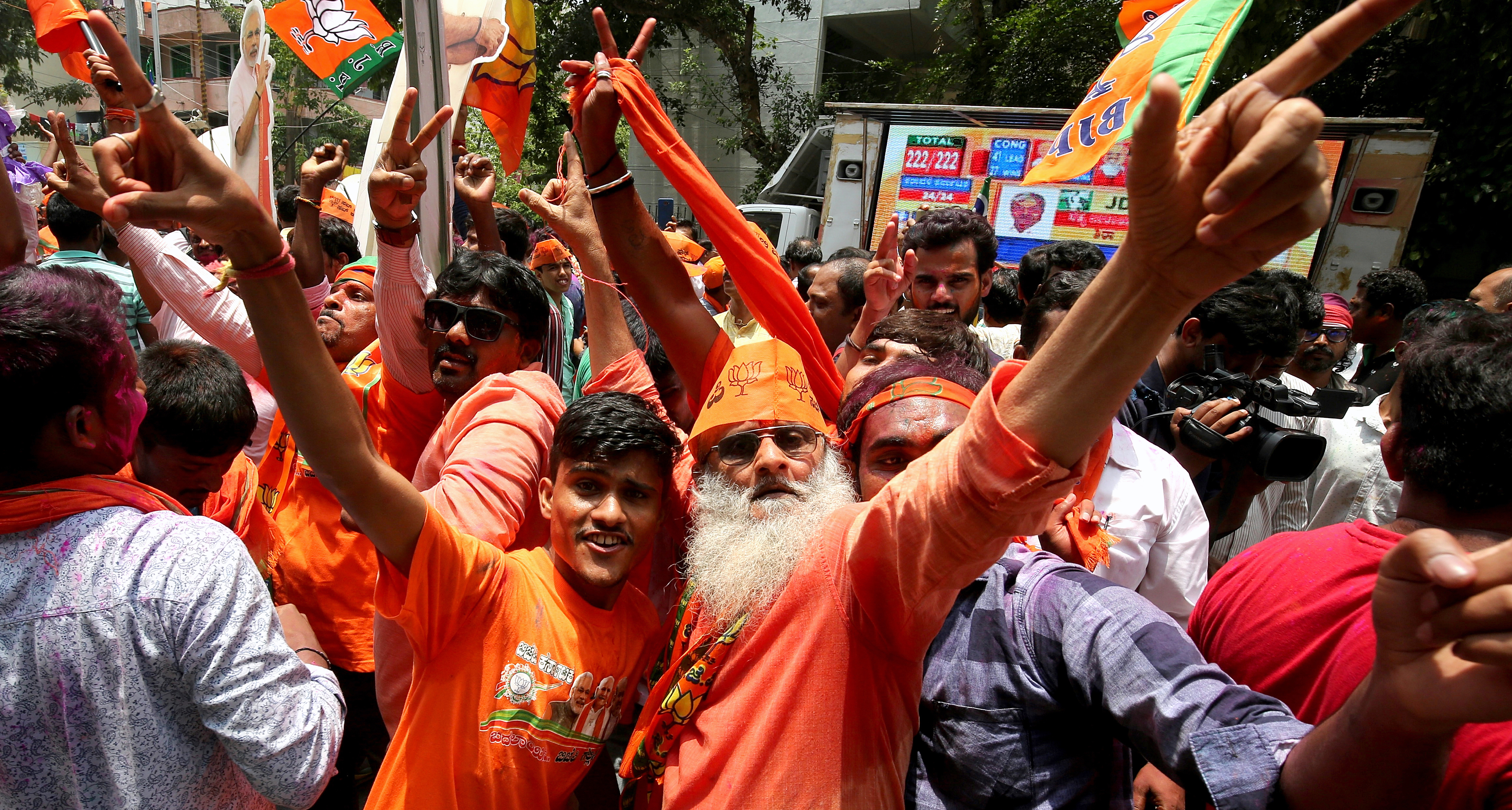 epa06727961 Indian preceding officers carry electronic voting machine (EVM) and Voter Verifiable Paper Audit Trail (VVPAT) to their respective polling booths on the eve of Karnataka Assembly Election and polls in Bangalore, India, 11 May 2018. The election will be held in the southwest Indian state of Karnataka on 12 May 2018, in all of its 224 Legislative Assembly constituencies. Vote counting and results will be announced on 15 May 2018. EPA-EFE/JAGADEESH NV
epa06727961 Indian preceding officers carry electronic voting machine (EVM) and Voter Verifiable Paper Audit Trail (VVPAT) to their respective polling booths on the eve of Karnataka Assembly Election and polls in Bangalore, India, 11 May 2018. The election will be held in the southwest Indian state of Karnataka on 12 May 2018, in all of its 224 Legislative Assembly constituencies. Vote counting and results will be announced on 15 May 2018. EPA-EFE/JAGADEESH NV